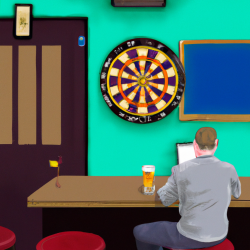March 9, 2023
Progress depends on heterodox thought and difficult questions
 Between the 9th and 13th Centuries, the world’s intellectual centre and the source of much of its progress, discovery and achievement was Baghdad. This was the Muslim Golden Age and at its core was the House of Wisdom, established by the Caliph Harun al-Rashid. At one point, this library housed the largest collection of books on Earth and drew the greatest minds in the world to share ideas, innovate and explore ancient sources of science and wisdom from Greek and Persian texts. Muslim, Jewish, Christian and atheist scholars worked together to advance human understanding until a slow decline culminated with a later Caliph declaring that its diversity of thought should bow to a literal interpretation of the Quran and Hadith.
Between the 9th and 13th Centuries, the world’s intellectual centre and the source of much of its progress, discovery and achievement was Baghdad. This was the Muslim Golden Age and at its core was the House of Wisdom, established by the Caliph Harun al-Rashid. At one point, this library housed the largest collection of books on Earth and drew the greatest minds in the world to share ideas, innovate and explore ancient sources of science and wisdom from Greek and Persian texts. Muslim, Jewish, Christian and atheist scholars worked together to advance human understanding until a slow decline culminated with a later Caliph declaring that its diversity of thought should bow to a literal interpretation of the Quran and Hadith.





































March 23, 2023
Getting back to basics in The Great Workplace Conversation
by Mark Eltringham • Comment, Flexible working, Technology, Wellbeing